Fresh from poring over Warner Home Video’s JFK box, I tucked into an equally welcome Blu-ray set devoted to another figure who has loomed large in our cultural consciousness, James Dean: Ultimate Collector’s Edition. Another sturdy, handsomely presented offering, with a commemorative book, poster reproductions, and other material you’d expect to find in an UCE, the set chronicles the meteoric ascent and shattering fall of an actor who walked in the footsteps of John Garfield, Montgomery Clift, and Marlon Brando and exited the epitome of the young American male in the flush but anxious years following World War II. So brief–dead in a car crash at age 24, Dean received not one but alas two posthumous Oscar nominations (the only actor to have two such accolades) for two of his three films, his first, East of Eden (1955), and his last, Giant (1956). So iconic–it was his second film, Rebel Without a Cause (1955), that cemented an image of disillusionment and longing, one that audiences can still see themselves in.
Dean was fortunate in his directors. Eden remains my favorite of his films, with Elia Kazan (fresh from Brando and On the Waterfront) fitting a freer talent in a tradition of quality-type movie, based on part of John Steinbeck’s tome. He wrote in his memoirs that it was the late Julie Harris who kept the peace between the actor and his film father, the imposing Raymond Massey, who was cut from a different cloth, and it’s that constant tension that drives the movie. The generation gap is at the center of Rebel, with the younger castmembers (including Natalie Wood and Sal Mineo) feeding off Dean’s idiosyncrasies and Nicholas Ray, an anarchic personality himself, taking it all in and shocking an audience used to tamer portraits of their kids in the movies. The possible limits of Dean’s formative talent are seen in George Stevens’ Giant, a hugely popular but clunky Texas-sized epic that got away from a usually assured filmmaker, with the actor hammily aging into a mid life he never experienced. It’s still a mesmerizing portrait of dissolution, however. What might have been…?
The three films, all available separately, contain the extensive extras from a prior DVD release, and with the exception of the problematic, elements-plagued Giant (still a slight advance on the non-anamorphic DVD) are a high-def improvement. The set contains a pair of set-exclusive documentaries, a PBS American Masters episode, James Dean: Sense Memories, focused on his training at New York’s Actors Studio, and James Dean: Forever Young, which also delves into the period before his stardom, and is narrated by Martin Sheen, one of Dean’s many spiritual heirs. Note that if you’re interested primarily in the three movies on region-free Blu-ray, you can obtain this set much less expensively via Amazon UK, though the packaging is flimsier. However you acquire it, it’s an invaluable piece of film history.
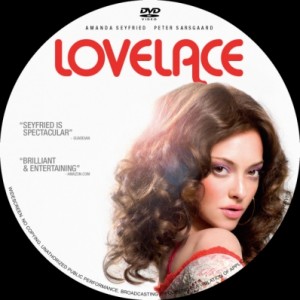 We live in a world where some may know more about this NSFW guy than his legendary namesake. I thought about addressing the mainstreaming of James Deen when Paul Schrader’s movie, The Canyons, was released. After all the hype, however, it was the kind of thing to excite only a handful of film critics, and anyone baited to watch it on VOD came away disappointed with its ludicrous light show sex scene, protecting the non-existent privacy of Deen and co-star Lindsay Lohan, 27 going on 45. I couldn’t quite get the tone right, either; I have my doubts about the sexual and cultural freedom of porn (paid, filmed sex for anonymous masturbators being as much a trap as liberation) but, hey, we’ve all gone down that road as viewers.
We live in a world where some may know more about this NSFW guy than his legendary namesake. I thought about addressing the mainstreaming of James Deen when Paul Schrader’s movie, The Canyons, was released. After all the hype, however, it was the kind of thing to excite only a handful of film critics, and anyone baited to watch it on VOD came away disappointed with its ludicrous light show sex scene, protecting the non-existent privacy of Deen and co-star Lindsay Lohan, 27 going on 45. I couldn’t quite get the tone right, either; I have my doubts about the sexual and cultural freedom of porn (paid, filmed sex for anonymous masturbators being as much a trap as liberation) but, hey, we’ve all gone down that road as viewers.
Lovelace neatly reflects my dilemma. Part of it is fast times with Linda Lovelace (a game Amanda Seyfried) in her Deep Throat salad days, fun with adult films; as her story of her life changed over time, part of it is her near-complete degradation at the hands of her awful husband, Chuck Traynor (scary Peter Sarsgaard) and subsequent anti-porn stance. The Oscar-winning documentarians Rob Epstein and Jeffrey Friedman, whose last biopic was Howl, leave little doubt as to where their sympathies are, as married life and porn life converge into a nightmare. While the movie plays into my divided feelings regarding porn, it’s too sketchy to sink in, with one of those “all star” day player casts that are better on the marquee than in the movie (the inevitable James Franco plays Hef, though Sharon Stone and Robert Patrick are quite good as Lovelace’s parents). The cursory treatment of the subject extends to the disc extras, or extra, a brief making-of. And to think two movies about an unknowable if not quite, err, impenetrable performer were once going to be made. One was enough, and perhaps too much.
(As it happens I did have my say once about porn, but my feelings about Deen, starting with his irritating nom-de-porn, are different. He’s on notice if he lands a superhero movie or something you might actually pay to see in a multiplex.)
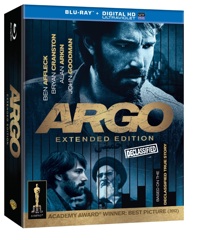 From the AVN Awards to the Academy Awards: two Best Picture winners, now (and again) on Blu-ray. Argo, further yourself: likable Hollywood rogues help rescue Iranian hostages in this year’s champ, available as a Declassified Extended Edition. The additional ten minutes that star and director Ben Affleck have added in, mostly regarding his character Tony Mendez’s relationship with the CIA, add baggage to a colorful movie that was already a bit strained at two hours. But they’re painless (has anyone watched Affleck’s 150-minute home theater cut of The Town more than once?) and the Oscar-winning theatrical version is also there among a bevy of box set extras. (I like the replica Mendez badge, though cutting out Affleck’s bearded face and putting in my own mug hasn’t gotten me much clearance in Washington, and there’s a behind-the-scenes book and a map with scene-specific notes, too.) New supplementary documentaries, about an hour’s worth, include interviews with the actual Mendez, George Tenet, and former president Jimmy Carter, a cast discussion–and a minute on that now famous phrase, “Argo fu…” You know the rest.
From the AVN Awards to the Academy Awards: two Best Picture winners, now (and again) on Blu-ray. Argo, further yourself: likable Hollywood rogues help rescue Iranian hostages in this year’s champ, available as a Declassified Extended Edition. The additional ten minutes that star and director Ben Affleck have added in, mostly regarding his character Tony Mendez’s relationship with the CIA, add baggage to a colorful movie that was already a bit strained at two hours. But they’re painless (has anyone watched Affleck’s 150-minute home theater cut of The Town more than once?) and the Oscar-winning theatrical version is also there among a bevy of box set extras. (I like the replica Mendez badge, though cutting out Affleck’s bearded face and putting in my own mug hasn’t gotten me much clearance in Washington, and there’s a behind-the-scenes book and a map with scene-specific notes, too.) New supplementary documentaries, about an hour’s worth, include interviews with the actual Mendez, George Tenet, and former president Jimmy Carter, a cast discussion–and a minute on that now famous phrase, “Argo fu…” You know the rest.
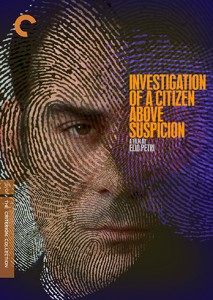 I saw Investigation of a Citizen Above Suspicion, winner of the 1970 Oscar for Best Foreign Language Film, at New York’s Film Forum more than a decade ago. Before that, and afterwards, it was as slippery as its main character, a police inspector who kills his mistress, then, in his megalomania and psychosis, all but begs his disbelieving, status-conscious colleagues to indict him for the crime. An Italian Blu-ray released earlier this way whetted appetites for a Criterion Collection release, now available, as all Criterion titles now are, in a BD/DVD combo pack. It is, par for the course, definitive, wedding an excellent 4k digital restoration of Elio Petri’s elusive crime thriller, which blends sadism, social commentary, and dashes of Brecht, to some outstanding supplements. These include a 1970 interview with the filmmaker, a 2005 documentary about Petri featuring Robert Altman and Vanessa Redgrave, a 2010 interview with the film’s esteemed composer, Ennio Morricone, and a fine, hour-long piece from 2008 about its magnetic star, the actor and left-wing political activist Gian Maria Volonte, who you may recall from his roles in Sergio Leone’s A Fistful of Dollars and For a Few Dollars More. Justice is served.
I saw Investigation of a Citizen Above Suspicion, winner of the 1970 Oscar for Best Foreign Language Film, at New York’s Film Forum more than a decade ago. Before that, and afterwards, it was as slippery as its main character, a police inspector who kills his mistress, then, in his megalomania and psychosis, all but begs his disbelieving, status-conscious colleagues to indict him for the crime. An Italian Blu-ray released earlier this way whetted appetites for a Criterion Collection release, now available, as all Criterion titles now are, in a BD/DVD combo pack. It is, par for the course, definitive, wedding an excellent 4k digital restoration of Elio Petri’s elusive crime thriller, which blends sadism, social commentary, and dashes of Brecht, to some outstanding supplements. These include a 1970 interview with the filmmaker, a 2005 documentary about Petri featuring Robert Altman and Vanessa Redgrave, a 2010 interview with the film’s esteemed composer, Ennio Morricone, and a fine, hour-long piece from 2008 about its magnetic star, the actor and left-wing political activist Gian Maria Volonte, who you may recall from his roles in Sergio Leone’s A Fistful of Dollars and For a Few Dollars More. Justice is served.
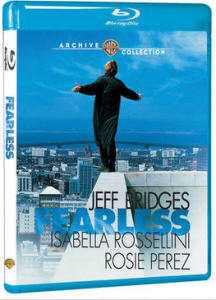 Rescued from the oblivion of an unworthy DVD transfer is Peter Weir’s intensely moving Fearless (1993), now available as a made-on-demand Blu-ray from the Warner Archive. A transfer supervised by DP Allen Daviau restores the potency of a kind of fable, as Jeff Bridges, who survives the scariest plane crash in movie history (Alive and Flight don’t even come close), enters a state of grace, unmoored by his fears and failings, and comforts a far less certain survivor (Rosie Perez) while alienating his wife (Isabella Rossellini) and son with his messianic behavior. A flop upon release (it did net a subdued Perez a deserved Oscar nomination), the movie has acquired something of a cult over the years, for the across-the-board excellence of its direction (to think that Weir, working in a vein similar to early Australian successes like Picnic at Hanging Rock and The Last Wave, has only made three films since) and acting (John Turturro and Benicio Del Toro also appear), Rafael Ygelsias’ ruminative screenplay, and its haunting use of Gorecki’s Symphony No. 3. I think about it every time I fly.
Rescued from the oblivion of an unworthy DVD transfer is Peter Weir’s intensely moving Fearless (1993), now available as a made-on-demand Blu-ray from the Warner Archive. A transfer supervised by DP Allen Daviau restores the potency of a kind of fable, as Jeff Bridges, who survives the scariest plane crash in movie history (Alive and Flight don’t even come close), enters a state of grace, unmoored by his fears and failings, and comforts a far less certain survivor (Rosie Perez) while alienating his wife (Isabella Rossellini) and son with his messianic behavior. A flop upon release (it did net a subdued Perez a deserved Oscar nomination), the movie has acquired something of a cult over the years, for the across-the-board excellence of its direction (to think that Weir, working in a vein similar to early Australian successes like Picnic at Hanging Rock and The Last Wave, has only made three films since) and acting (John Turturro and Benicio Del Toro also appear), Rafael Ygelsias’ ruminative screenplay, and its haunting use of Gorecki’s Symphony No. 3. I think about it every time I fly.
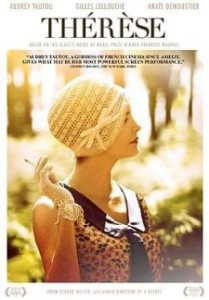 Let’s change it up to France, circa 1927, and Audrey Tautou, the enchanting star of Amelie (2001). Stuck in a loveless marriage to a dolt of a landowner, Therese rebels in rather drastic fashion after a potential affair, and a way out of her doldrums, fizzles. From a novel by Nobel Prize winner Francois Mauriac, filmed before in 1962 by Georges Franju (Eyes Without a Face) and starring Emmanuelle Riva (Amour), this was the last credit for the late Claude Miller (his Alias Betty is a personal favorite), and it is as sharply observed as his best work, depicting a moral void that opens in a cloistered society rife with anti-Semitism and other ills that are just below the surface. Deliberate but never dull, this is an absorbing story, and in a change of pace Tautou proves riveting. The attractive transfer is accompanied by a trailer.
Let’s change it up to France, circa 1927, and Audrey Tautou, the enchanting star of Amelie (2001). Stuck in a loveless marriage to a dolt of a landowner, Therese rebels in rather drastic fashion after a potential affair, and a way out of her doldrums, fizzles. From a novel by Nobel Prize winner Francois Mauriac, filmed before in 1962 by Georges Franju (Eyes Without a Face) and starring Emmanuelle Riva (Amour), this was the last credit for the late Claude Miller (his Alias Betty is a personal favorite), and it is as sharply observed as his best work, depicting a moral void that opens in a cloistered society rife with anti-Semitism and other ills that are just below the surface. Deliberate but never dull, this is an absorbing story, and in a change of pace Tautou proves riveting. The attractive transfer is accompanied by a trailer.
Remember when Denzel Washington and Mark Wahlberg were brash young Turks? Well, that was some time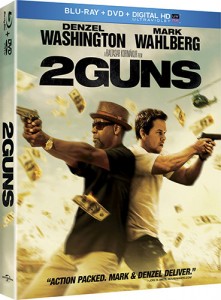 ago, so, comfortably positioned in the firmament, they team up for an action movie, 2 Guns. Modeled after 70s crime movies like Don Siegel’s Charley Varrick with the grit removed, and entertaining in its bullet-ridden way, the movie casts them as drug dealers who, unbeknownst to one another, are undercover agents for different agencies. You can practically see the panels of the graphic novel on which this is based as their loyalty is tested amidst a welter of heists, covert ops, black ops, and appearances by likable character actors in colorful parts (Bill Paxton, Robert John Burke, Fred Ward, and Edward James Olmos, plus the delectable Paula Patton as Washington’s squeeze–they parried in Deja Vu). A typically lush “new movie” transfer on Blu-ray is accompanied by a making-of, deleted scenes, and an informative commentary with producer Adam Siegel and director Baltasar Kormakur, who remade his own Contraband as a vehicle for Wahlberg. I liked this more.
ago, so, comfortably positioned in the firmament, they team up for an action movie, 2 Guns. Modeled after 70s crime movies like Don Siegel’s Charley Varrick with the grit removed, and entertaining in its bullet-ridden way, the movie casts them as drug dealers who, unbeknownst to one another, are undercover agents for different agencies. You can practically see the panels of the graphic novel on which this is based as their loyalty is tested amidst a welter of heists, covert ops, black ops, and appearances by likable character actors in colorful parts (Bill Paxton, Robert John Burke, Fred Ward, and Edward James Olmos, plus the delectable Paula Patton as Washington’s squeeze–they parried in Deja Vu). A typically lush “new movie” transfer on Blu-ray is accompanied by a making-of, deleted scenes, and an informative commentary with producer Adam Siegel and director Baltasar Kormakur, who remade his own Contraband as a vehicle for Wahlberg. I liked this more.
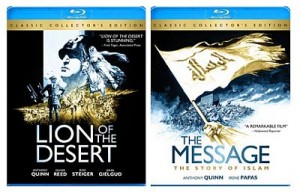 It’s a two-fer for the larger-than-life Anthony Quinn on Blu-ray as he conquers the Arab world in The Message (1977) and Lion of the Desert (1981). Subtitled “the story of Islam,” The Message is dramatically disadvantaged by being unable to show Mohammad, the messenger, so instead we get all-purpose ethnic Quinn as his uncle, talking to the camera (which represents the unseen prophet) while striving to unite warring factions as the seeds of peace are sown. It didn’t exactly work for all audiences, and over three hours makes for somewhat inert viewing for the uninitiated, but director Moustapha Akkad’s intentions were good and Maurice Jarre’s birth of a religion score received an Oscar nomination, if you’re wondering how this fits into TCM’s annual “31 Days of Oscar” celebration. As a producer, Akkad printed money with Halloween (1978) and seven sequels, and he and Quinn returned with the livelier Lion, the story of Libyan tribal leader Omar Mukhtar, a guerrilla warrior who thwarted Mussolini’s World War II aims. Quinn and Oliver Reed, as a frustrated Italian general, give solid performances, Jarre returns with another stirring score, and the whole thing was apparently underwritten by Muammar Gaddafi’s government. More’s the pity that these signature achievements by Akkad, who was killed with his daughter in a 2005 suicide bombing, are so weakly presented on Blu-ray, with compromised aspect ratios, inferior 1080i transfers, and zero extras.
It’s a two-fer for the larger-than-life Anthony Quinn on Blu-ray as he conquers the Arab world in The Message (1977) and Lion of the Desert (1981). Subtitled “the story of Islam,” The Message is dramatically disadvantaged by being unable to show Mohammad, the messenger, so instead we get all-purpose ethnic Quinn as his uncle, talking to the camera (which represents the unseen prophet) while striving to unite warring factions as the seeds of peace are sown. It didn’t exactly work for all audiences, and over three hours makes for somewhat inert viewing for the uninitiated, but director Moustapha Akkad’s intentions were good and Maurice Jarre’s birth of a religion score received an Oscar nomination, if you’re wondering how this fits into TCM’s annual “31 Days of Oscar” celebration. As a producer, Akkad printed money with Halloween (1978) and seven sequels, and he and Quinn returned with the livelier Lion, the story of Libyan tribal leader Omar Mukhtar, a guerrilla warrior who thwarted Mussolini’s World War II aims. Quinn and Oliver Reed, as a frustrated Italian general, give solid performances, Jarre returns with another stirring score, and the whole thing was apparently underwritten by Muammar Gaddafi’s government. More’s the pity that these signature achievements by Akkad, who was killed with his daughter in a 2005 suicide bombing, are so weakly presented on Blu-ray, with compromised aspect ratios, inferior 1080i transfers, and zero extras.
On VOD (iTunes, Amazon, XBox, Sony, Google/YouTube) you can find Roman Polanski: A Film Memoir, a feature-length interview with the 80-year-old director, who has lived a tumultuous life as an outsider in the Krakow ghetto during World War II, as a Hollywood insider directing Rosemary’s Baby and Chinatown and experiencing horrific personal tragedy as the Manson family killed wife Sharon Tate and their unborn child, and as a pariah after the sexual assault of a 13-year-old in 1977 and subsequent flight from the US. That episode, still generating headlines, has already fueled two documentaries, so Polanski’s friend and producer Andrew Braunsberg, who interviewed the filmmaker during his 2009 house arrest in Switzerland, spends more time on his devastating childhood and early career while dipping in and out of the rest. A professional interviewer would undoubtedly have asked more probing questions; still, this once-over-lightly survey, directed by noted DVD supplements producer Laurent Bouzereau, compels.
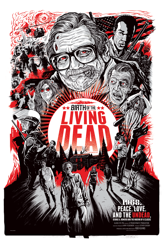 I’m almost written out on Night of the Living Dead, but Birth of the Living Dead, also on VOD, tells the story concisely on its 45th anniversary. George A. Romero is as ever companionable, and a little caustic, about his achievement (complaining about his “shit” makeup effects) and the talking heads assembled by the horror meisters at producer Glass Eye Pix know their stuff, though I suspect Romero might be peeved by the participation of producer Gale Anne Hurd, whose Walking Dead poaches on his territory and for fans younger than myself has likely eclipsed it. Still it’s a good yarn, as the finished film, grappling obliquely with race and Vietnam, went from obscurity to obscenity (it was dumped into release with kid-friendlier Godzilla flicks, traumatizing children and angering adults) to become one of the most influential movies ever made. But as with too many docs of this type it’s too fannish–it’s intriguing that a Bronx teacher uses it as a study aide, but given my own trepidation of it at age 14 aren’t these kids a little young? Have mores changed that much? No one asks the questions, a shame, as there’s always something to chew on regarding Living Dead.
I’m almost written out on Night of the Living Dead, but Birth of the Living Dead, also on VOD, tells the story concisely on its 45th anniversary. George A. Romero is as ever companionable, and a little caustic, about his achievement (complaining about his “shit” makeup effects) and the talking heads assembled by the horror meisters at producer Glass Eye Pix know their stuff, though I suspect Romero might be peeved by the participation of producer Gale Anne Hurd, whose Walking Dead poaches on his territory and for fans younger than myself has likely eclipsed it. Still it’s a good yarn, as the finished film, grappling obliquely with race and Vietnam, went from obscurity to obscenity (it was dumped into release with kid-friendlier Godzilla flicks, traumatizing children and angering adults) to become one of the most influential movies ever made. But as with too many docs of this type it’s too fannish–it’s intriguing that a Bronx teacher uses it as a study aide, but given my own trepidation of it at age 14 aren’t these kids a little young? Have mores changed that much? No one asks the questions, a shame, as there’s always something to chew on regarding Living Dead.
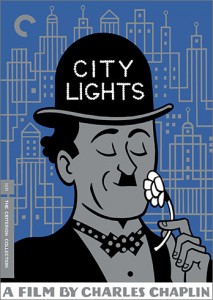 Finally, a kinder, gentler iconoclast, Charlie Chaplin, whose City Lights (1931) is one of the greats. Criterion has been revisiting the Chaplin catalog with first-rate transfers and supplements, and this masterpiece is no exception. Defiantly minus dialogue at a time when silent films were passe, and made with extraordinary perfectionism (more than 300 takes lavished on a single scene), it puts the Little Tramp among the 1 percent, where he befriends a millionaire, is mistaken for a swell, and tries to raise money to restore the eyesight of a blind flower girl who is kind to him. The last, heart-rending sequence wraps the film up like the brightest bow, and it’s never looked better than in this 4k transfer. Extensive extras include a fine commentary by Chaplin scholar Jeffrey Vance, Chaplin Today: City Lights, a 2003 documentary, much archival footage, an excerpt from the 1915 short The Champion (boxing is part of the fun here), and a booklet with an essay by Gary Giddins and a 1966 interview with the filmmaker. A movie to treasure—and, like every Criterion title, half off at Barnes & Noble through tomorrow. Christmas comes early.
Finally, a kinder, gentler iconoclast, Charlie Chaplin, whose City Lights (1931) is one of the greats. Criterion has been revisiting the Chaplin catalog with first-rate transfers and supplements, and this masterpiece is no exception. Defiantly minus dialogue at a time when silent films were passe, and made with extraordinary perfectionism (more than 300 takes lavished on a single scene), it puts the Little Tramp among the 1 percent, where he befriends a millionaire, is mistaken for a swell, and tries to raise money to restore the eyesight of a blind flower girl who is kind to him. The last, heart-rending sequence wraps the film up like the brightest bow, and it’s never looked better than in this 4k transfer. Extensive extras include a fine commentary by Chaplin scholar Jeffrey Vance, Chaplin Today: City Lights, a 2003 documentary, much archival footage, an excerpt from the 1915 short The Champion (boxing is part of the fun here), and a booklet with an essay by Gary Giddins and a 1966 interview with the filmmaker. A movie to treasure—and, like every Criterion title, half off at Barnes & Noble through tomorrow. Christmas comes early.





Comments